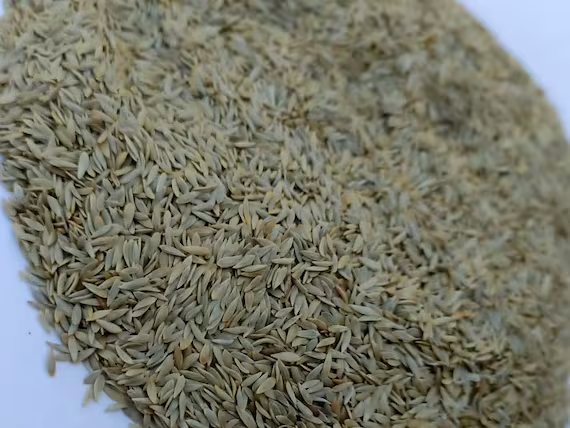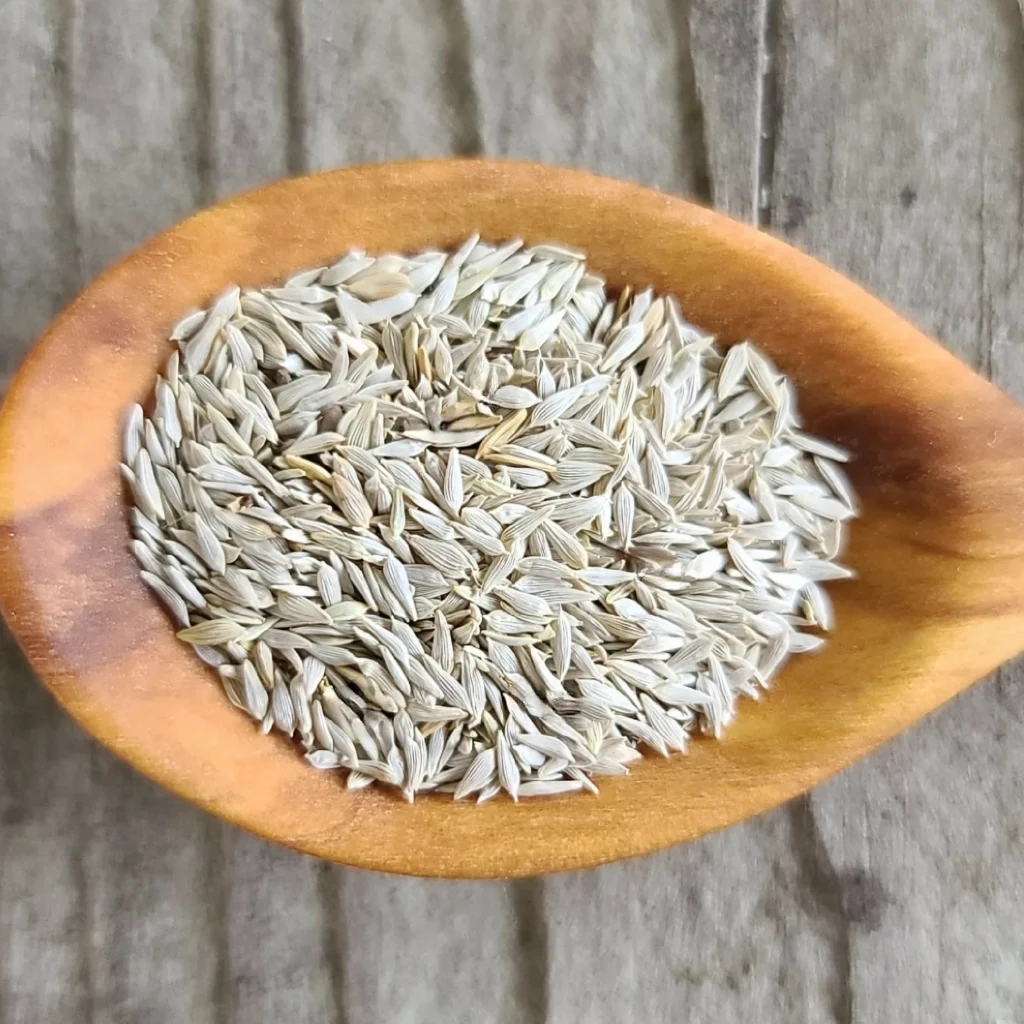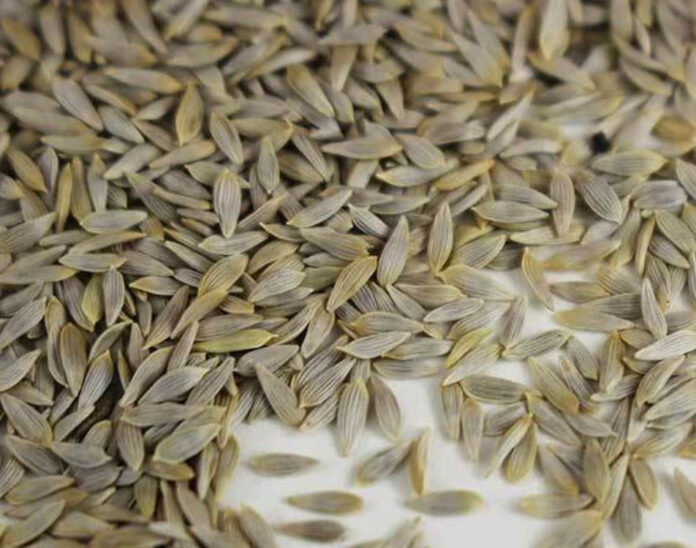INTRODUCTION:
Lettuce seeds are the small, dormant reproductive structures of the lettuce plant (Lactuca sativa) that, when planted in the right conditions, will germinate and grow into new lettuce plants. These seeds are the source for harvesting edible lettuce leaves, and they are also used to cultivate more lettuce plants. They are sold as packets for home gardening and are a key component of the commercial lettuce industry.

English: Lettuce seeds
Arabic: بذور الخس (Buthoor al-khas)
Turkish: Marul tohumu
Hindi: सलाद के बीज (Salaad ke beej)
Urdu: تخم کاہو
Chinese (Mandarin): 生菜种子 (Shēngcài zhǒngzi)
Greek: Σπόροι μαρουλιού (Sporoi marouliou)

HEALTH BENEFITS:
Promotes Sleep:
Extracts from lettuce seeds, particularly romaine lettuce, contain lactucin, a sedating substance that aids in inducing sleep and can improve sleep duration.
Boosts Bone Health:
Lettuce seeds are rich in vitamins K and C, as well as calcium, which are essential for bone formation, strengthening, and reducing the risk of fractures.
Supports Eye Health:
The presence of vitamin A and carotenoids like lutein and zeaxanthin helps nourish eye cells, sharpen vision, and protect against macular degeneration and cataracts.
Aids Digestion:
The high fiber content in lettuce seeds promotes healthy digestion and supports a healthy gut.
Provides Antioxidant Properties:
Lettuce seeds contain antioxidants that combat free radicals in the body, supporting overall health and potentially reducing inflammation.
Helps Manage Weight:
Being low in calories and high in fiber, they can be beneficial for weight management by promoting feelings of fullness.
Regulates Blood Sugar:
The low glycemic index and fiber content of lettuce seeds can help in regulating blood sugar levels.
Supports Heart Health:
Potassium and fiber in lettuce seeds can contribute to maintaining cardiovascular health by assisting in blood pressure management and lowering cholesterol levels.
SIDE EFFECTS:

Drowsiness or Excessive Sleepiness
Lettuce seeds are mildly sedative. High doses may cause drowsiness, lethargy, or difficulty concentrating.
Low Blood Pressure (Hypotension)
They may have a mild blood pressure-lowering effect. This could be risky for people already on antihypertensive medications.
Allergic Reactions
Some people might be allergic to compounds in lettuce or its seeds, leading to:
Itching
Rashes
Swelling
Breathing difficulty (rare)
Digestive Discomfort
Overconsumption can cause:
Nausea
Stomach cramps
Diarrhea or loose stools
HOW TO USE:
1. Lettuce Seed Tea (Herbal Infusion)
Purpose: For relaxation, insomnia, mild anxiety, or cooling effect in the body.
Ingredients:
1 teaspoon of lettuce seeds
1–1.5 cups of water
Instructions:
Crush the seeds slightly (optional).
Boil the water and pour it over the seeds.
Let it steep for 10–15 minutes.
`Strain and drink warm, once or twice a day.
Tip: Add honey or a pinch of cardamom for taste.

2. Lettuce Seed Powder
Purpose: Used traditionally to support sleep, digestion, and reproductive health.
Instructions:
Dry roast lettuce seeds lightly and grind into powder.
Take ¼ to ½ teaspoon with warm water or milk, once or twice a day.
3. Lettuce Seed Oil (if available)
Purpose: Used externally for massage (cooling and calming) or sometimes taken internally in very small doses for medicinal purposes.
Instructions:
For massage: Rub gently on the body to relieve heat, tension, or restlessness.
Internally: Follow exact dosage as prescribed by an herbalist (usually a few drops only).
4. Traditional Mixtures (Unani or Ayurvedic Recipes)
Lettuce seeds are often combined with:
Poppy seeds
Fennel seeds
Dry coriander
Sugar candy (mishri)
Precautions:
Avoid using lettuce seeds in high doses, as they may cause drowsiness or digestive upset.
Not recommended during pregnancy or breastfeeding without medical advice.
Consult a doctor before use if you have low blood pressure or take sedatives.




